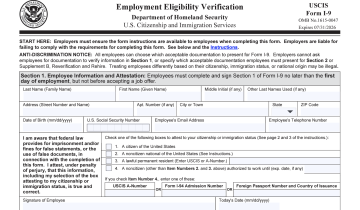FOR IMMEDIATE RELEASE
Media Contact: Kathryn Klopfer, Marketing Communications & PR Specialist
[email protected] | 262.696.3426
Honoring and Hiring Veterans
MILWAUKEE, WI (October 29, 2019) – In recognition of Veterans Day, November 11, and to assist veterans, as well as employers, close the existing jobs gap, MRA is on a mission to connect area veterans looking for jobs and companies recruiting for jobs. Currently, there are more than 8,000 veterans aged 18-64 unemployed in Wisconsin according to Veterans Data Central.
Says Beth Mathison, MRA Director of Member Relations, “Companies who have hired veterans in the past are continually seeking to hire more former service members, because you cannot ask for a more committed, dedicated and leader-worthy candidate.”
Veterans have valuable skills learned in their military training that they can offer in their civilian jobs. In general, veterans are known to be:
- Highly technically proficient – veterans are exposed to accelerated high levels of training and education in technical areas that aren’t readily available in the civilian educational system.
- Highly disciplined – veterans are trained to follow regimented schedules and work rules.
- Deeply committed – many veterans look at the workplace with the same level of commitment they made when enlisting in the armed services.
- Able to see the big picture – when they are serving, veterans learn to rely on themselves to understand the whole situation/piece of equipment and be able to act accordingly.
- Able to work under pressure, with solid troubleshooting skills – from their experience, veterans have developed valuable problem-solving skills.
- Hardworking – veterans have learned to dig in and get things done. Sometimes preferring to work alone, they tend to be task-oriented and take deadlines seriously. As managers, they will not hesitate to be hands-on.
- Quality-minded – the military focuses on process improvement all the time. Veterans have honed their training abilities, and have experience learning how things work in order to keep things running if automated systems go down.
- Skilled at driving – veterans are often required to drive heavy equipment and have developed skills like those needed for CDL licenses. They will need less training to obtain licenses to drive heavy equipment and transportation vehicles.
- Attentive to safety – veterans will often be the ones to identify unsafe conditions that others overlook.
In addition, there are many benefits and incentives offered to companies that hire veterans. Employers that hire veterans may be eligible for the Internal Revenue Service’s Work Opportunity Tax Credit (WOTC). The Veteran’s Administration’s Vocational Rehabilitation and Employment (VR&E) program also offers training subsidies and assistive technology which provides specialized tools, equipment, and workplace modifications to help veterans perform their work.
In fact, Ann Schueller, an HR professional and former veteran, developed a Rank Assumption Chart for Employers that shows comparable civilian positions that veterans would be highly trained and qualified for based on their service rankings. This helps both businesses and veterans match military experience with civilian job requirements.
In turn, looking at the job search from a veteran’s perspective, in the military, you rarely create a resume or fill out an application for duty assignments. So, many veterans may need assistance in simply developing their resume and applying for new jobs.
When beginning a job search, the U.S. DOL advises veterans to treat it like a military operation:
1. Determine mission and objective(s)
2. Gather intelligence
3. Determine logistics and resource requirements
4. Identify resources and/or training shortfalls
5. Develop primary, alternate, and tertiary plans
6. Integrate assets and resources
7. Establish timelines
8. Conduct rehearsals
Added Mathison, “It is important for an organization to not only be ‘veteran friendly’ by fostering a culture which is supportive, appreciative, respectful, embracing, and inclusive of the veterans, but also be ‘veteran ready’ by having tools in place and people educated to assist our veterans.”
###
About MRA—The Management Association: Founded in 1901, MRA is a nonprofit employer association that serves 4,000 employers, covering more than one million employees worldwide. As one of the largest employer associations in the nation, MRA helps its members thrive by offering comprehensive HR services, talent management, learning and organization development opportunities, and total rewards planning. MRA works to help organizations build a successful workplace and powerful workforce. Headquartered in Waukesha, WI, MRA has regional offices in Palatine, IL; Moline, IL; and Plymouth, MN. To learn more about MRA, visit www.mranet.org.


